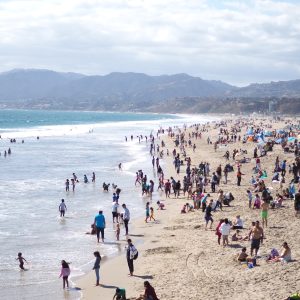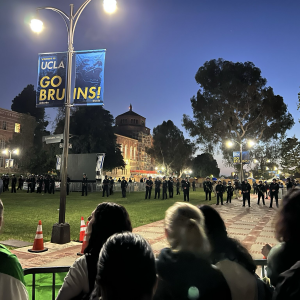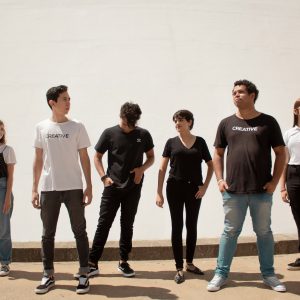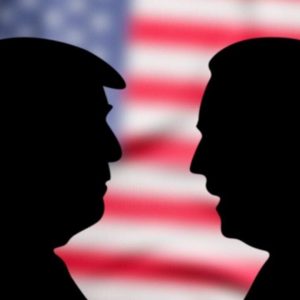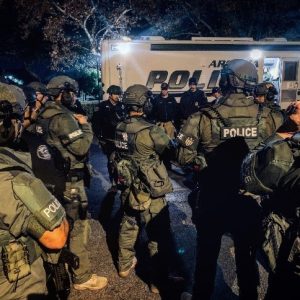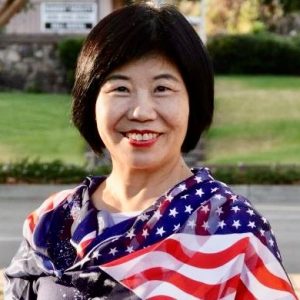 View Winners →
View Winners → Congressional Gold Medal Presented to Sierra Madre Nisei Soldier Shoso Nomura
 Nomura is one of only two Sierra Madre men to get the Honor. -Photo by Terry Miller
Nomura is one of only two Sierra Madre men to get the Honor. -Photo by Terry Miller
By Terry Miller
In the late summer of 1944, a C-47 landed in Yan’an, a remote town in northwestern China’s Shaanxi Province. On board were US military and diplomatic staff, sent to the headquarters of the Communist Party of China (CPC) as members of the US Army Observer Group, better known as the Dixie Mission.
It was the first official contact between the US government and the Chinese Communists.
Sierra Madre resident Shoso Nomura, 93, was there for this hisoric event and has now, 68 years later, just received his Nisei Congressional Gold Medal of Honor after serving his country as a Japanese American intelligence officer for the US Army in WW 11. Shoso Nomura was one of only two Sierra Madre men who received the honor. The other recipient was WWII Veteran Mitsuo Kunihiro, 93.
Born on Luck Baldwin’s daughter’s ranch (on the corner of Foothill and Double Drive – known today as Santa Anita) Shoso Nomura has led a truly wonderful and colorful life. Particularly in
The Nomura family had a farm at that southwest corner and Shoso started working there in 1915.
Masaichi ( Charlie) Nomura, Shoso’s dad, was originally from Hiroshima and moved the States in 1901 for a better life. The elder Nomura started a grocery store in Kersting Court ( now home of Lucky Baldwin’s Delerium).
Nomura’s grocery store lasted until 1923 where he continued to be a “vegetable peddler” in Sierra Madre exclusively. At that time in history, Sierra Madre was a city of only about 2,000 people. It was aliving for the Nomura family and then Pearl Harbor was bombed. ” Those damn fools…” Nomuma’s mother exclaimed citing the overwhelming power of the US Military machine.
It was then that everything changed for Japanese-Americans. A presidential internment order unsettled the lives of all Japanese Americans living in the United States.
When President Franklin D. Roosevelt signed Executive Order 9066 which created military exclusion zones on the Pacific coast, it effectively authorized the internment of 110,000 Japanese Americans living to camps inland for the duration of the war. Around 18,000 Japanese in Hawaii were interned, more than 60 percent of them American citizens.
It wasn’t easy at first for Nomora’s mother who was told by some internees just after internment began … ” you raised a dog. He’s a spy” – referring to her son’s choice of profession…volunteering for the MIS. The Nomura’s sold their market as soon as the evacuation orders came out.
As part of the United States Army Observation Group, commonly known as the Dixie Mission, Nomura was one of the first U.S. Intelligence Officers effort to establish official relations with the Communist Party of China and the People’s Liberation Army, then headquartered in the mountainous city of Yan’an. This mission was launched on 22 July 1944 during World War II, and lasted until 11 March 1947.
In January of 1944 Shoso Nomura was shipped to China/Burma/India theatre and then assigned to General HQ, CBI in New Delhi, India. From there he served with SINTIC ( Sino Translation and Interrogation Center in Chungking, China. From there he went on with the Dixie Mission in Communist China.
First denied enlistment, Nisei men were recruited and tested in the internment camps as Japanese translators to serve in the Pacific Theater. The internment order would not allow Nisei to be schooled at The Presidio in San Francisco, and so the Military Intelligence Service Language School (MISLS) was moved to Minnesota, first at Camp Savage and then to Fort Snelling.
MIS linguists served in Chungking, China under Chiang Kai-Shek in July 1944. Five MIS Nisei participated in an American mission to Yenan, which operated as Mao Tse Tung’s headquarters. The servicemen nicknamed this mission the “Dixie Mission” because it was in “rebel” territory.
The MIS interrogated Japanese POWs to extract intelligence information on the Japanese units as well as wrote propaganda leaflets distributed among the prisoners and intercepted communications. The MIS worked diligently day and night to gather vital information.
MIS soldiers who served in China included:
Koji Ariyoshi Shoso Nomura
Jack Ishii Toshio Uesato
George I. Nakamura
On November 2, 2011, the Congressional Gold Medal was presented collectively to the U.S. Army’s 100th Infantry Battalion, the 442nd Regimental Combat Team, and the Military Intelligence Service, also known as the Nisei Soldiers of World War II. The medal was in recognition of their dedicated service during World War II.
They were, and are, nisei, second-generation Japanese-Americans who in World War II fought tenaciously for the very country that had interned them and their family members.
In addition to establishing foreign relations, the goal was to investigate the Communist Party politically and militarily, and determine if the U.S. would benefit from establishing such a liaison. John S. Service, of the United States Department of State, at that time was responsible for political analysis, and Colonel David D. Barrett of the United States Army performed the military analysis for the US observer group (Dixie Mission) Initially, they reported that the Chinese Communists might be useful wartime and post-war ally, and that the atmosphere in Yan’an was more energetic and less corrupt than in Nationalist areas. After the war, the Dixie Mission’s reports, and Service and Barrett, were condemned by pro-Chinese Nationalist factions in the American government and fell victim to McCarthyism. Service was fired from his position at the State Department, and Barrett was denied a promotion .
The brief existence of the Dixie Mission served as a positive memory between the People’s Republic of China and the United States during the administration of President Richard M. Nixon when official relations between the two countries were re-established. Veterans of the Dixie Mission, like John Service and Koji Ariyoshi and Shoso Nomura were among the first Americans invited to visit the People’s Republic of China.
The 100th/442nd was a blend of Hawaiian and mainland Japanese Americans that became the most decorated unit in United States military history for its size and length of service.
Combined, the 100th and the 442nd received 7 Presidential Unit Citations, 21 Medals of Honor, 29 Distinguished Service Crosses, 560 Silver Stars, 4,000 Bronze Stars, 22 Legion of Merit Medals, 15 Soldier’s Medal, and over 4,000 Purple Hearts.
MIS honors have been slow to come, in part for the secrecy of their service. As intelligence officers he said they were under orders to keep quiet about their service for decades after the war.
Past Congressional Gold Medal recipients include George Washington, Mother Teresa and Winston Churchill. Less valorously, lawmakers also have bestowed the medal on the likes of singer Frank Sinatra.
Those present at the November ceremony said the veterans of the 100th Infantry Battalion, the 442nd Regimental Combat Team and the Military Intelligence Service truly earned their honors the hard way.
“You fought World War II on two fronts,” Democratic Sen. Barbara Boxer of California told the veterans, quoting former President Harry Truman. “You fought not only your enemy; you fought prejudice, and you won.”
At 93 Shoso Nomura’s sense of humor is still razor sharp to which his wife Florence can attest.
At the end of our interview Shoso Nomura quipped ” When you stop and think about it, I’m a pretty versatile guy.”















































